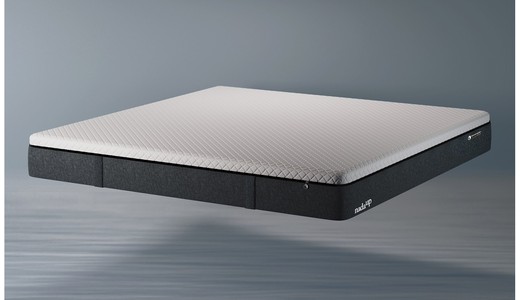Digesting the Facts: When to Eat for Optimal Sleep Quality

Have you ever wondered if that late-night snack or heavy dinner is ruining your sleep? The truth is, the timing of your last meal doesn’t just affect digestion—it plays a vital role in the quality of your sleep, energy levels the next day, and your overall health. Pairing mindful eating habits with clinically tested sleep solutions like the NadaUp Mattress can help you maximize the benefits of your nightly rest, transforming every night into a true moment of recovery and well-being.
How Long Does Food Take to Digest?
Vegetarian Foods
Vegetarian meals—such as fruits, vegetables, grains, and legumes—generally digest quicker. Light plant-based foods typically take around 30 minutes to 2 hours to leave the stomach. Because they are easier on the digestive system, they are less likely to cause discomfort when eaten a few hours before bed.
Non-Vegetarian Foods
In contrast, meals rich in proteins such as meat, poultry, or fish can take 3 to 4 hours or longer to digest. These heavier foods require more energy and time to process, which can interfere with your body's ability to shift into sleep mode if consumed too close to bedtime.
Full vs. Empty Stomach: What's Best for Sleep?
The Downsides of a Full Stomach
Going to bed with a full stomach can lead to several problems:
-
Acid Reflux and Heartburn: Lying down after eating makes it easier for stomach acid to flow back into the esophagus, causing discomfort.
-
Disrupted Sleep Patterns: Your body focuses on digestion, which can interrupt deep, restorative sleep.
-
Feeling Sluggish the Next Day: Poor digestion overnight can leave you feeling groggy and unrested in the morning.
The Risks of an Empty Stomach
However, going to bed hungry isn't ideal either. Skipping your last meal or waiting too long can lead to:
-
Difficulty Falling Asleep: Hunger pangs can keep you awake.
-
Interrupted Sleep: Low blood sugar levels may cause you to wake up during the night.
-
Increased Stress: Hunger can elevate cortisol levels, affecting sleep quality and mood.
The Optimal Time to Eat: 2 to 3 Hours Before Bed
Most experts recommend having your final meal 2 to 3 hours before going to bed. This timing allows your body to begin the digestion process while minimizing the risk of indigestion or interrupted sleep. It also helps regulate blood sugar levels and supports the natural production of sleep-related hormones.
Sleep-Friendly Foods and Drinks
If you feel slightly hungry closer to bedtime, opt for these light, sleep-supportive options:
-
Tart Cherries: Naturally rich in melatonin, a hormone that regulates your sleep cycle.
-
Bananas: Contain magnesium and potassium, which help relax muscles.
-
Almonds: Provide magnesium and healthy fats that promote restful sleep.
-
Herbal Teas: Chamomile or peppermint tea can have calming, sleep-enhancing effects.
-
Warm Milk: Contains tryptophan, an amino acid that supports the production of sleep hormones.
These foods and beverages are easy to digest and can support your body’s natural transition into sleep.
How NadaUp Mattress Complements Your Nighttime Routine
Optimizing meal timing is just one part of the equation. Your sleep surface plays an equally important role in ensuring a restorative night. The NadaUp Mattress, endorsed by leading health and medical organizations, is designed to complement your body’s natural rhythms with the following benefits:
-
Faster Sleep Onset: Clinical tests show participants fell asleep 29% faster.
-
Better Sleep Efficiency: Sleep quality improved by 7% in clinical studies, translating to 25 extra nights of full rest over a year.
-
Superior Pressure Relief: 60% better pressure redistribution, reducing discomfort and enhancing spinal alignment.
-
Temperature Regulation: 69% faster cooling than standard memory foam, keeping you comfortable all night.
-
Trusted Medical Certification: Approved by MHRA, NICE, ACPOHE, and CSP for promoting sleep health, posture, and back care.
Combining mindful eating with the scientifically backed benefits of NadaUp's advanced posture support mattress helps you achieve deeper, more satisfying sleep night after night.
Conclusion: Create a Nighttime Routine That Works
By following these key practices, you can turn your sleep into a powerful health tool:
-
Eat lighter, well-timed dinners about 2–3 hours before bed.
-
Choose sleep-friendly snacks if mild hunger strikes late in the evening.
-
Invest in a clinically tested, ergonomic mattress like NadaUp to support your body and mind during rest.
Start tonight by adjusting your meal timing and upgrading your sleep environment with NadaUp—because every night matters.
References
-
Sleep Foundation. "Is It Bad to Eat Before Bed?" https://www.sleepfoundation.org/nutrition/is-it-bad-to-eat-before-bed
-
FoodDrinkTalk. "How Long to Wait for Food to Digest Before Sleeping." https://fooddrinktalk.com/how-long-to-wait-for-food-to-digest-before-sleeping/
-
Just Chart It. "Food Digestion Time Chart." https://www.justchartit.com/food-digestion-time-chart/
-
Step to Health. "Better Sleep: Full or Empty Stomach?" https://steptohealth.com/better-sleep-full-empty-stomach/
-
Verywell Mind. "The Best Foods to Help You Sleep." https://www.verywellmind.com/foods-that-can-help-you-sleep-8744286









